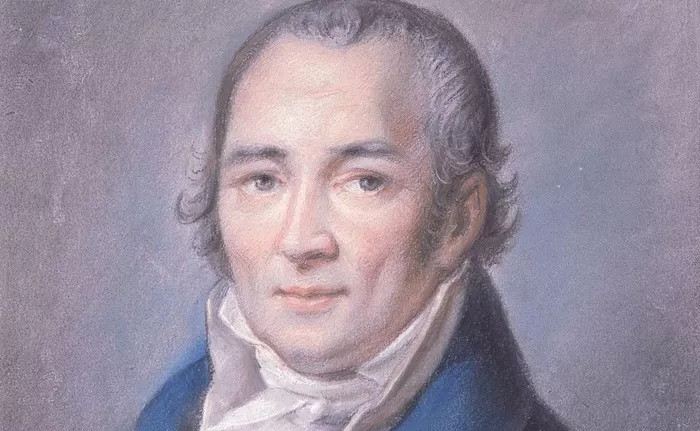Johann Peter Hebel (1760–1826) was a renowned 19th-century German poet whose literary contributions continue to be celebrated in the realm of German poetry. As an influential figure, Hebel’s works reflect deep moral values, humor, and an appreciation for everyday life. His poetry and prose embody a linguistic clarity that made his writings accessible to a broad audience. Compared to his contemporaries, such as Johann Wolfgang von Goethe and Friedrich Hölderlin, Hebel’s style was distinct due to its focus on regional dialects and folk traditions. This article explores the life, literary contributions, and lasting influence of Hebel, placing him within the broader context of 19th-century German poetry.
Johann Peter Hebel
Johann Peter Hebel was born in Basel, Switzerland, but spent most of his life in Germany, particularly in the Baden region. Raised in humble circumstances, he developed a keen sense of observation, which later influenced his literary works. His early education was in theology, and he eventually became a Lutheran pastor. Despite his religious vocation, Hebel’s interest in storytelling and poetry remained strong. He wrote extensively in the Alemannic dialect, a regional form of German, which gave his works a unique character compared to standard High German poetry.
Hebel’s Contribution to German Poetry
Hebel’s poetic and prose works are notable for their simplicity, warmth, and moral instruction. His most famous literary contributions include “Alemannische Gedichte” (Alemannic Poems) and “Schatzkästlein des rheinischen Hausfreundes” (Treasure Chest of the Rhine House Friend). These works are rich in folk wisdom and often contain themes of nature, love, and everyday life.
His “Alemannische Gedichte” (1803) collection is a prime example of his poetic genius. Written in the Alemannic dialect, the poems depict rustic life with humor and wisdom. Unlike many of his contemporaries, who pursued grandeur and philosophical depth in their poetry, Hebel focused on the charm of the ordinary. His ability to capture rural life made him a beloved figure among common readers.
In “Schatzkästlein des rheinischen Hausfreundes” (1811), Hebel compiled moralistic short stories and poetic reflections, which were widely read across Germany. The work resonated with readers due to its accessible language and valuable life lessons. Through this collection, Hebel established himself as a master storyteller, blending prose and poetry seamlessly.
Comparison with Other 19th Century German Poets
During the 19th century, German poetry experienced a period of transformation, with poets exploring themes of Romanticism, Classicism, and Realism. Hebel’s works can be compared with other significant German poets of his time, such as Johann Wolfgang von Goethe, Friedrich Hölderlin, and Heinrich Heine.
Johann Wolfgang von Goethe (1749–1832): Goethe’s poetry was characterized by its classical refinement and philosophical depth. While Goethe explored grand existential themes in works like “Faust”, Hebel focused on local traditions and simple, moralistic storytelling.
Friedrich Hölderlin (1770–1843): Hölderlin’s poetry was marked by its intense Romanticism and classical influences. In contrast, Hebel’s work was more grounded in everyday life and regional dialects, making it more accessible to common people.
Heinrich Heine (1797–1856): Heine’s poetry was often satirical and politically charged. Hebel, on the other hand, avoided political commentary and focused on universal human values through his regional storytelling.
Hebel’s uniqueness lay in his ability to communicate profound messages through seemingly simple verses. While Goethe and Hölderlin’s poetry appealed to the intellectual elite, Hebel’s works resonated with a broader audience, making him a crucial figure in 19th-century German poetry.
Influence and Legacy
Hebel’s influence extended beyond literature into the cultural consciousness of Germany. His works were widely used in schools due to their moral teachings and linguistic clarity. Even today, his stories and poems continue to be appreciated for their historical and literary value.
Prominent writers and poets, including Hermann Hesse and Theodor Heuss, have acknowledged Hebel’s influence. His ability to capture the human spirit in simple narratives inspired later generations of German poets and writers.
Moreover, Hebel’s focus on dialect poetry helped preserve regional German languages. At a time when standard High German was becoming dominant, his works maintained the richness of local speech, providing a cultural and linguistic bridge between different regions of Germany.
Conclusion
Johann Peter Hebel remains a significant figure in 19th-century German poetry. His ability to blend humor, wisdom, and moral instruction into simple yet profound poems set him apart from his contemporaries. While poets like Goethe and Hölderlin pursued grander literary themes, Hebel’s genius lay in his depiction of everyday life. His contributions to German poetry continue to be celebrated, highlighting the timeless appeal of his storytelling and the enduring impact of his literary legacy.

